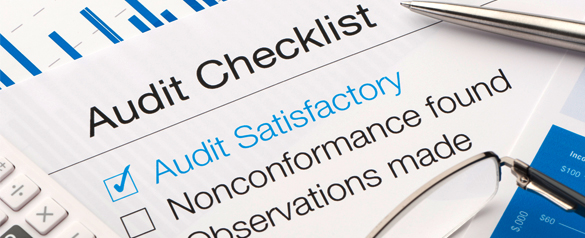Functional Safety Assessment (FSA)
Functional Safety Assessment (FSA) is mandatory in accordance with IEC 61511 [2]. FSAs are undertaken in addition to the traditional activities of verification, validation and functional safety audits. FSA is performed to ensure that
functional safety has been achieved within the specific scope of supply for the organisation(s) in the context of the SIS Safety Lifecycle.
The FSA assesses if appropriate methods, techniques and processes have been used to achieve functional safety, in relation to design, implementation and installation of Safety Instrumented System. IEC 61508 Part 1, clause 8 defines as to when, how, who and why in addition to the levels of independence required of the organisation and staff implementing the FSAs.
IEC 61508 clause 8.2.4 states “the functional safety assessment shall be carried out throughout the overall, E/E/PES and software lifecycle, and may be carried out after each safety lifecycle phase, or after a number of safety lifecycle phases.”
 Some may argue that this only concerns the Logic Solver, but fail to realise the essence of Functional Safety Management and failure of SIS could be attributed to failure of Input sub-systems (i.e. sensors, transmitters) and equally to failure of Final Elements (ESD Valves, Contactor, I/R Relay, MCC Relays, etc). FSA is about assessing each sub-system to ensure appropriate planning, recording, analysis has been performed, related to SIS, during each lifecycle stage to reduce systematic and common cause failures.
Some may argue that this only concerns the Logic Solver, but fail to realise the essence of Functional Safety Management and failure of SIS could be attributed to failure of Input sub-systems (i.e. sensors, transmitters) and equally to failure of Final Elements (ESD Valves, Contactor, I/R Relay, MCC Relays, etc). FSA is about assessing each sub-system to ensure appropriate planning, recording, analysis has been performed, related to SIS, during each lifecycle stage to reduce systematic and common cause failures.
An Audit is a systematic and independent examination to determine whether the procedures specific to the functional safety requirements comply with the planned arrangements, are implemented effectively and are suitable to achieve the specified objectives. SIS Audits are usually carried out to ensure that the SIS Implementation meets the requirements of SIS Design Requirements specified in SIS Requirements Specification, Plant Safety Philosophies, (SRS) Safety Requirements Specification and (PRS) Process Requirements Specification.
Our experienced Consultants have carried out FSA Stage 1, Stage 2, Stage 3 (mandatory) and Stage 4 FSAs. We have also identified gaps during the FSA and provided recommendations to customers to enable them to close those gaps.
Backed with a strong C&I Background, EAC are very experienced in carrying out Functional Safety Assessments, SIS Audits and Independent Verification of SIS. Typically the documents that are reviewed include:
The FSA assesses if appropriate methods, techniques and processes have been used to achieve functional safety, in relation to design, implementation and installation of Safety Instrumented System. IEC 61508 Part 1, clause 8 defines as to when, how, who and why in addition to the levels of independence required of the organisation and staff implementing the FSAs.
IEC 61508 clause 8.2.4 states “the functional safety assessment shall be carried out throughout the overall, E/E/PES and software lifecycle, and may be carried out after each safety lifecycle phase, or after a number of safety lifecycle phases.”

An Audit is a systematic and independent examination to determine whether the procedures specific to the functional safety requirements comply with the planned arrangements, are implemented effectively and are suitable to achieve the specified objectives. SIS Audits are usually carried out to ensure that the SIS Implementation meets the requirements of SIS Design Requirements specified in SIS Requirements Specification, Plant Safety Philosophies, (SRS) Safety Requirements Specification and (PRS) Process Requirements Specification.
Our experienced Consultants have carried out FSA Stage 1, Stage 2, Stage 3 (mandatory) and Stage 4 FSAs. We have also identified gaps during the FSA and provided recommendations to customers to enable them to close those gaps.
Backed with a strong C&I Background, EAC are very experienced in carrying out Functional Safety Assessments, SIS Audits and Independent Verification of SIS. Typically the documents that are reviewed include:
- SIS Requirements Specifications.
- Safety Requirements Specification.
- Process Requirements Specification.
- SIS Functional Design Specification.
- Relevant P&IDs and Cause and Effects.
- Datasheets.
- SIS I/O Schedules and Loop Drawings.
- Inspection and Test Plan.
- Factory Acceptance Test Documentation.
- SIS Integration Test Procedures.
- Test Plan.
- Functional Safety Management Procedure.
- SIS Safety Lifecycle Plan.
- Deterministic SIL Report, Risk Assessment Report.
- HAZOP, CHAZOP Report.
- SIL Verification Report (depending on FSA stage).
SIS Lifecycle Model
Standards
IEC 61508, IEC 61511, ISA 84.00.02
PHA/HAZOP
Hazard Scenarios
Risk Assessment
Level of Risk for each Scenario
SIL Detemination LOPA
SIF Performance Requirements
Safety Requirement Specification
General & Specific SIS/SIF Requirements
SIF Design Configuration
SIF Design
SIL Verification
SIF Performance Verification
Lifecycle Validation & Certification
Safety Validation & Certification

